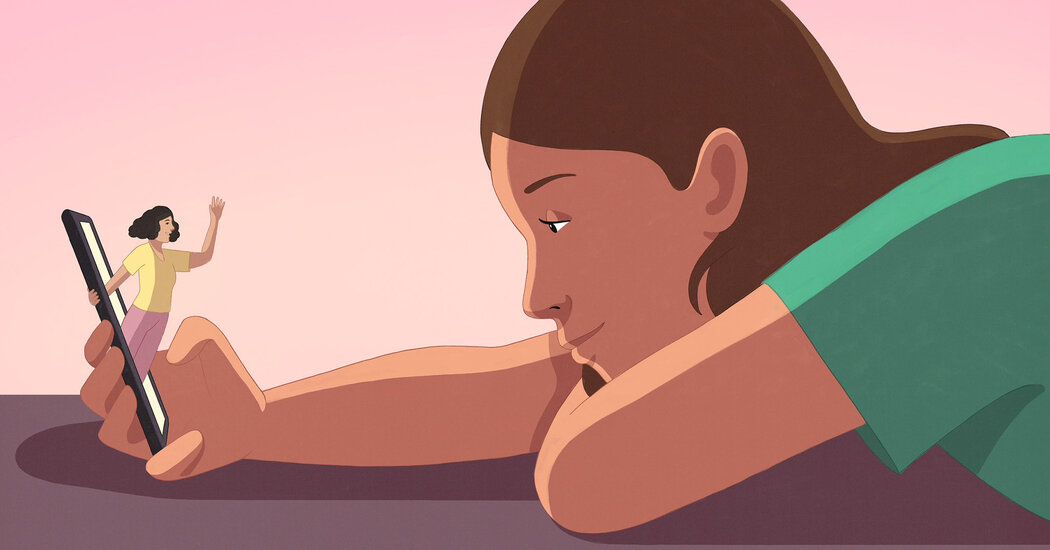I’m Catherine Pearson, and I cover families and relationships for The New York Times. Today, I’m making the case for something many of us have a love-hate relationship with: texting.
Recently, I was having a lousy day. My husband was out of town, and the kids were fighting nonstop. Just as I was about to threaten my 6- and 9-year-old boys with boarding school, a text popped up on my phone. It was from Miranda, a high-school friend whom I catch up with only a couple of times a year. She had texted simply to tell me she’d been thinking about me — it probably took her 30 seconds to write, and it took me even less time to read. But her message lifted me right out of my funk.
Ample research shows that social connection is crucial to our physical and mental health and longevity. It is good for our brains and hearts, and helps protect us against stress. One oft-quoted 2010 study concluded that lacking social connection might be comparable to smoking up to 15 cigarettes a day.
Friendship is a very specific and valuable form of social connection, said Julianne Holt-Lunstad, the lead author on the cigarette study and director of the Social Connection and Health Lab at Brigham Young University. “It’s difficult to be choosy about your neighbors or co-workers. You’re born into your family,” she explained. “Friendships are chosen and, because of that, we need to intentionally make time for them.”
Putting in the effort to maintain friendships may feel like a heavy lift, and to a certain extent it is. Research suggests people need to spend around 200 hours hanging out together in order to forge a close friendship. Unfortunately, the amount of time Americans spend engaged with friends every day has declined over the past two decades.
The good news? Research also shows that smaller efforts can help established friendships flourish. A 2022 study found that when you casually check in with a friend — the way Miranda did with that text — it’s more welcome than many of us realize.
Peggy Liu, one of the authors of that study, often writes to friends out of the blue to say, “I just thought I would say ‘hi’ and see how you’re doing.” Liu, an associate professor of business administration at the University of Pittsburgh, told me that even if it sometimes felt awkward, the practice had helped her reconnect with old friends.
Friendship Challenge Day 1: Text a friend.
Today’s challenge is a light lift — simply pick up your phone and shoot off a text. Maybe it’s for someone you’ve lost touch with. Maybe it’s for someone you’re missing. Or maybe it’s for someone you actually see quite often but want to check in with “just because.” You can use this text-message template or come up with something on your own.
You’re not alone if reaching out feels uncomfortable. Just keep in mind what Jeffrey Hall, a professor of communication studies at the University of Kansas, told me: “It’s typically the case that when people are out of touch for a while, it’s not because they dislike each other or don’t want to hear what is going on in each other’s lives. It’s just that they have fallen into a routine of not keeping in touch.”







